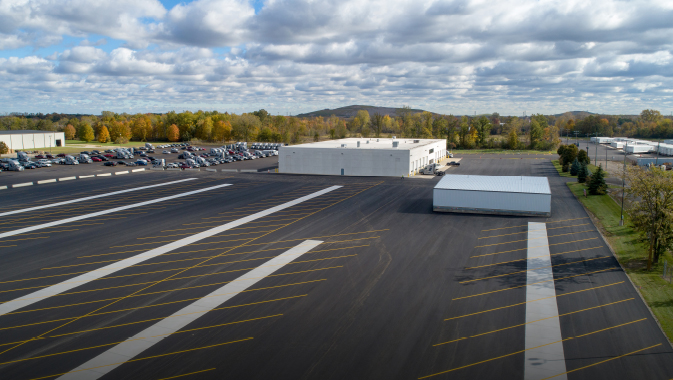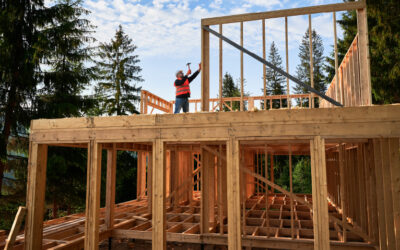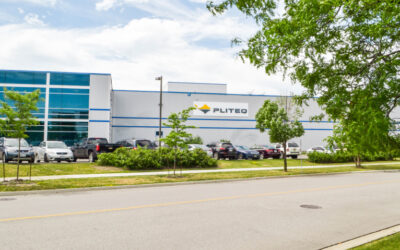What happens when you spend your high school summers getting up at 4:30 a.m. to go to work for a civil engineering contractor and learn the ropes of putting in underground utilities like water mains and storm sewers?
“I had my Nike shoes on, trudging around in the mud for the better part of three months of my summer,” says Tim Baugher, whose early start in the construction industry got him hooked. “It improved my discipline, improved my work ethic and also gave me that sense of accomplishment, the feeling of playing with a team,” he says.
Baugher is now president of Asphalt Specialists, Inc. (ASI) in Pontiac, Michigan, a suburb 20 miles northwest of Detroit. The company has an almost 30-year history of delivering on paving projects that are tough and long-wearing enough to withstand the harsh Michigan winters.
Parking work to roadwork
Six years in, ASI has doubled its sales team and expanded its market reach, from paving for large commercial parking lots – without disrupting operations – to entire school districts and major municipal roadways.
“There’s been a lot of government stimulus injected into the economy directly related to roadwork and municipal roadway reconstruction, so it’s a part of our business that we’re trying to grow,” Baugher explains.
When you think about it, there are a lot more roads than parking lots, so there’s ample opportunity. And being able to pivot and diversify operations these days has been an essential strategy, especially with the economic uncertainty of the pandemic.
“We have a product that people want, so it’s easy to sell it,” Baugher says. “And we put a lot of energy and focus into customer service and making sure that we’re providing a quality product.”
Starting small, growing sustainably
The company was built on the leadership and sweat of its founders, brothers Dan and Bruce Israel, who, as teenagers, started their own parking lot striping and traffic-marking service as a summer job.
While attending college – Dan would graduate from Denison University in 1983 and Bruce from Hillsdale College in 1986 – the brothers grew that summer job into a successful full-time business, selling it in 1988 to move on to bigger aspirations. In fact, the beginnings of ASI were a dump truck, a roller and a small paver – and a huge commitment to offer the best in customer service.
“They didn’t do this through acquisition,” Baugher says. “They did this through sheer work ethic, sheer energy.” By 1992, ASI had two full-time paving crews, and a team of close to 60 employees. The brothers purchased a small excavating company and began performing their own grading and excavation work. In 1995, Dan and Bruce acquired a 10-acre parcel in Pontiac’s Highwood Industrial Park and built “ASI World Headquarters,” an office complex large enough to accommodate the company’s growing staff. This facility included a four-bay shop, an industrial garage for 24-hour preventative maintenance and repair, and a fleet of big rigs and trailers.
“To this day,” Baugher shares, “[Dan and Bruce] are both actively involved in the business. For instance, I just talked to Dan at 5:30 this morning.”
Today, the family-owned business is one of Michigan’s biggest paving companies with a full complement of in-house services and 280 employees, including engineers who work closely with clients on design and landscaping. With such a robust team in-house, customers are saved the headaches and expense of separately contracting with designers, site contractors, asphalt contractors or concrete contractors.
The only way is up
At ASI, there is also equal emphasis on helping employees grow and advance with the company and advance. One of the current Vice Presidents, for example, started out driving a truck. “We’re a firm believer that in order to get to the top, you’ve got to start at the bottom,” says Baugher. “So we culturally have that attitude. We bring people in and help move them up the ranks.”
ASI has the competitive advantage of maintaining quality control in house and passing on cost savings to customers. The company has its own equipment fleet including pulverizers, milling machines, trucks, pavers, bulldozers, rollers and compactors. The Israel brothers also own and operate TKMS Trucking and Lou’s Transport, two trucking companies for hauling aggregate, the stone base material used on the job.
“During the construction process, it’s very important from a scheduling standpoint that we’re able to move material on and off of the job site at a rapid pace,” Baugher shares. “So for instance, at Costco, the parking lot is useful so that people can walk on it and people can use their cars. They don’t want paving to disrupt customer foot traffic.”
Getting parking lots and roadways finished at speed is critical, and right up there with quality workmanship. “For ASI, controlling the trucking is similar to controlling the rest of the operation. It speeds up the process and we’re able to get things done at a much more rapid pace than our competitors.”
First, the foundation
When you talk about expert paving, you have to talk about what’s happening underground. If you don’t have a strong foundation, you’ll get cracks, potholes and repair bills far sooner than you expect. An ASI job is never about paving over the top of existing problems and hoping for the best. It starts with soil analysis and troubleshooting from the bottom up.
The company’s specialty is demolition and reconstruction of existing sites, as well as soil stabilization, a process where cement and lime are poured with the actual soil to provide strength. “What happens a lot of the time, especially in Michigan, where we have expansive soils like clay and a lot of water, is that the soil underneath the parking lot has been compromised.”
That leaves companies with two choices, and of the two, ASI chooses the environmentally sound approach. “You dig out a bunch of dirt, take all that dirt away and bring in a whole bunch of stone from a quarry – or you can stabilize. With stabilization, none of the soil leaves the site. You pulverize the old asphalt and base materials, haul in a minimal amount of cement and water, and then you stabilize the soil. So it’s a comprehensive, solid layer of earth that you can pave on top of.”
ASI essentially uses the materials that are there and adds cement and water to form a solid layer to be paved on. It’s another win-win that’s both cost-effective and better for the planet.
Saving time and money
Chippewa Valley school district in Macomb County is just one example of a very satisfied customer. ASI looked at school properties, removed existing asphalt and discovered that the subgrade material was compromised.
“They would have ended up having to pay hundreds of thousands of dollars to an alternative contractor to do undercuts in order to get those soils fixed. Whereas we came in and we stabilized the soils and saved the district a ton of money and also gave them a solution that was going to work long-term,” says Baugher.
ASI did the job quickly so schools could continue operating and students wouldn’t be impacted. “Without us, they would have faced major delays and caused the school district to have a lot of pain, not only financially, but from a timing standpoint. It’s those scenarios,” he says, “where we’re able to really show our true colors.”













